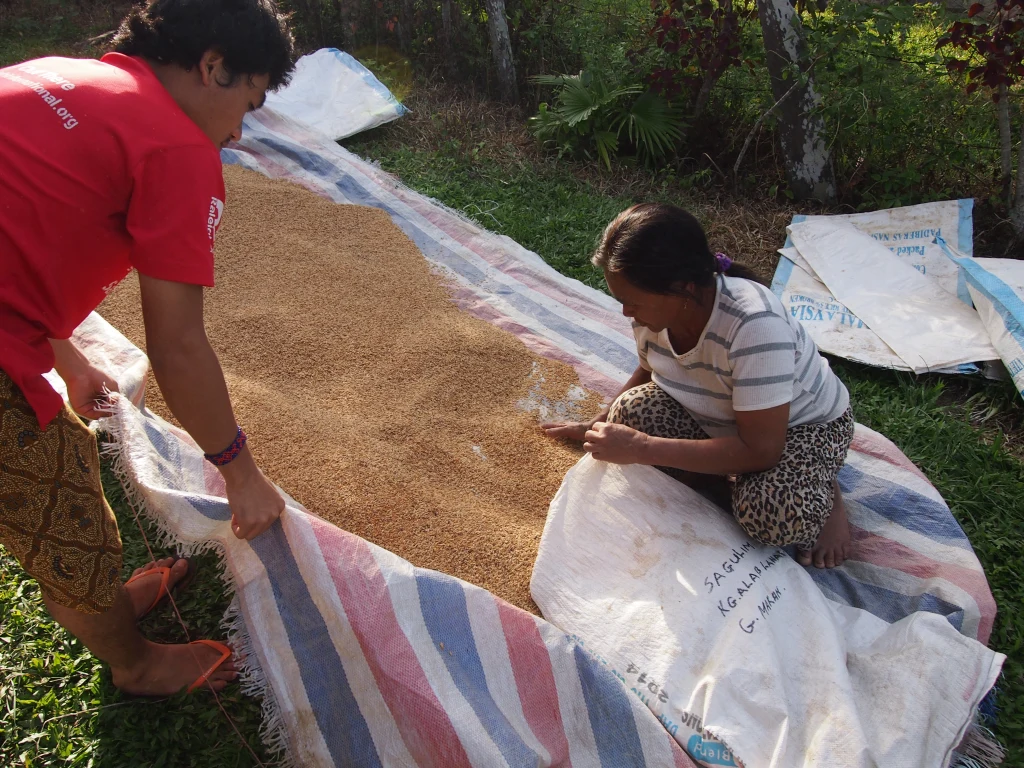Seaweed Mamas
With every sunrise, the women of Zanzibar dot the beaches to start their work. They are the seaweed farmers, taking advantage of the low tide to collect seaweed that washes ashore throughout the night, plant seedlings, and harvest the crop. About 80% of the seaweed farmers are women, and kids can often be seen joining them.
Seaweed is the third most productive sector after tourism and cloves in Zanzibar. It is the third biggest exporter of seaweed, after the Philippines and Indonesia. Seaweed from Zanzibar is exported to the United States, Denmark, Sweden, the UK, and China. The seaweed ends up being used in toothpaste, as the food additive carrageenan, in shampoos, cosmetics, medicine, and other pharmaceutical products.

During low tide, the sea often recedes so far that you can see seaweed plantations grown by local people. In knee-deep water, women drill the sticks into the sand and attach small pieces of seaweed to the rope strung out between the posts. In just over six weeks, these seedlings will grow tenfold and be ready to harvest. Some will be eaten, but most will be dried, sold to a local broker, and exported.
88% of seaweed farmers are women, making this an important activity to elevate their economic status and role in the community.

Wet skirts billowing in the breeze and raucous laughter mix together. It’s like a watery neighborhood allotment as the women laugh and trade rumors.
The heavily Muslim island has found liberation through seaweed harvesting. Most of the women in the villages used to only leave their homes to attend funerals, weddings, or to visit sick relatives. Many houses have stone benches along the outer wall to allow males to meet visitors at home without invading their women’s privacy inside, reflecting their seclusion in the architecture.
Some husbands first threatened divorce if their wives went out to cultivate seaweed. However, they gradually started to accept it once they saw how much money women were making.
Instead of leaving all the shopping to their spouses, women started going to the market and taking buses to the capital. Soon, many families would be able to afford better food, corrugated iron roofs rather than grass, furniture, school supplies, and uniforms.

Seaweed farming has not only become a thriving industry in Zanzibar but also a social change. Through their diligent work on the shores, these resilient women have not only elevated their economic status but also broken free from societal constraints. With each successful harvest, the laughter and camaraderie among the women echo the triumph of their liberation. The seaweed farms have become symbols of progress, offering a path to improved living conditions, education, and a brighter future for families in Zanzibar. Through the power of seaweed, these women have transformed their lives and uplifted their communities.







